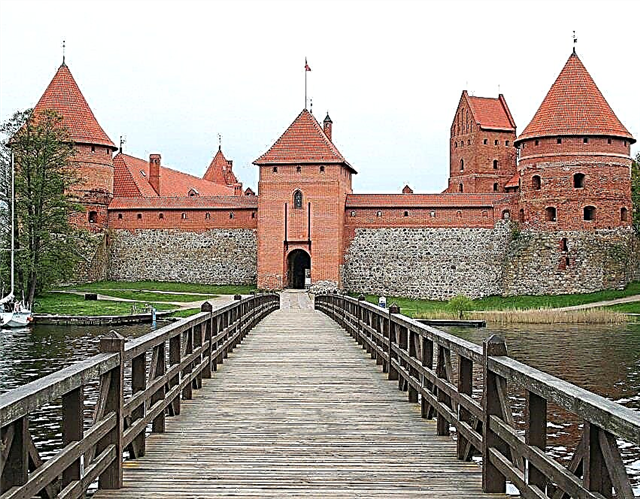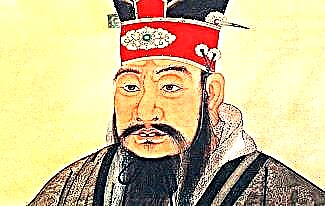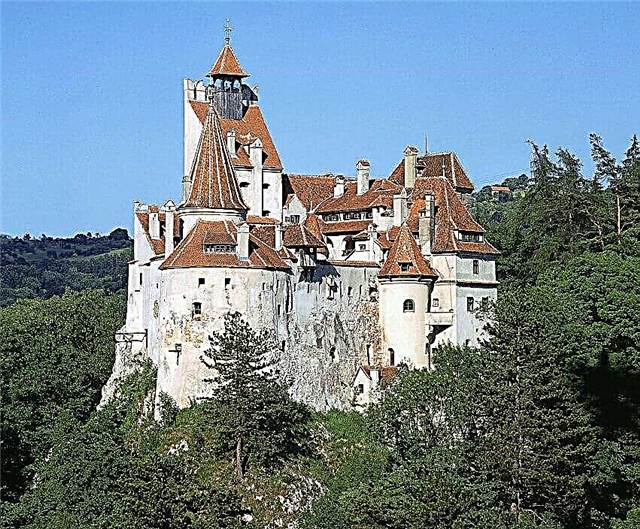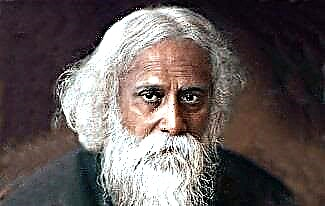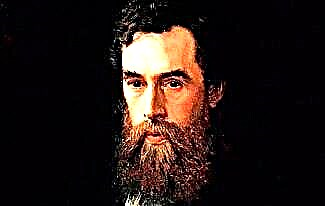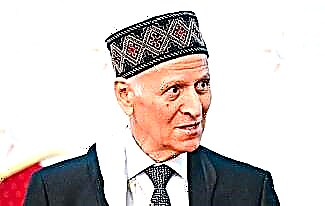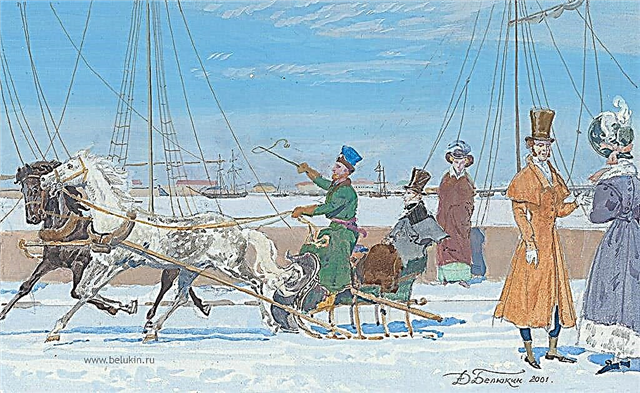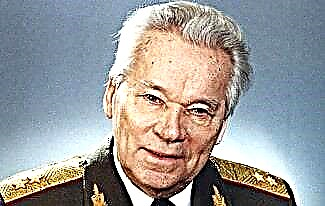Nicolaus Copernicus (1473-1543) - Polish astronomer, mathematician, mechanic, economist and theologian. He is the founder of the heliocentric system of the world, which marked the beginning of the first scientific revolution.
There are many interesting facts in the biography of Copernicus, which we will tell about in this article.
So, before you is a short biography of Nicolaus Copernicus.

Copernicus biography
Nicolaus Copernicus was born on February 19, 1473 in the Prussian city of Torun, which is now part of modern Poland. He grew up in a wealthy merchant family of Nicolaus Copernicus Sr. and his wife Barbara Watzenrode.
Childhood and youth
The Copernicus family had two boys - Nikolai and Andrey, and two girls - Barbara and Katerina. The first tragedy in the biography of the future astronomer occurred at the age of 9, when he lost his father.
The head of the family died from the plague that raged in Europe. A few years later, Nikolai's mother died, as a result of which his uncle Lukasz Watzenrode, who was a canon of the local diocese, took up his upbringing.
Thanks to the efforts of his uncle, Nikolai, together with his brother Andrey, was able to get a good education. After leaving school, the 18-year-old Copernicus entered the University of Krakow.
During that period of his life, the young man became interested in mathematics, medicine and theology. However, he was most interested in astronomy.
The science
After graduating from the university, the Copernican brothers went to Italy, where they became students at the University of Bologna. In addition to traditional disciplines, Nikolai was able to continue to study astronomy under the leadership of the famous astronomer Domenico Novara.
At the same time, in Poland, Copernicus was elected in absentia to the canons of the diocese. This happened thanks to the efforts of his uncle, who was then already a bishop.

In 1497, Nikolai, together with Novara, made a major astronomical observation. As a result of his research, he came to the conclusion that the distance to the moon in quadrature is equal for both the new moon and the full moon. These facts for the first time forced the astronomer to revise the theory of Ptolemy, where the Sun, along with other planets, revolved around the Earth.
After 3 years, Copernicus decides to quit his studies at the university, which mainly studied law, ancient languages and theology. The guy goes to Rome, where, according to some sources, he does not teach for long.
Later, the Copernican brothers entered the University of Padua, where they deeply studied medicine. In 1503 Nikolai graduated from the university and received a doctorate in canon law. For the next 3 years he practiced medicine in Padua.
Then the man returned home to Poland. Here he studied astronomy for about 6 years, carefully studying the movement and location of celestial objects. In parallel with this, he taught in Krakow, was a doctor and secretary to his own uncle.
In 1512, uncle Lukash dies, after which Nicolaus Copernicus connects his life with spiritual responsibilities. With great authority, he served as capitular trustee and ruled an entire diocese when Bishop Ferber was feeling bad.
At the same time, Copernicus never abandoned astronomy. An interesting fact is that he equipped one of the towers of the Frombork fortress for an observatory.
The scientist was lucky that his works were completed only in the last years of his life, and the books were published after his death. Thus, he managed to avoid persecution from the church for unconventional ideas and propaganda of the heliocentric system.
It should be noted that in addition to astronomy, Copernicus achieved great heights in other areas. According to his project, a new monetary system was developed in Poland and a hydraulic machine was constructed to supply residential buildings with water.
Heliocentric system
Using the simplest astronomical instruments, Nicolaus Copernicus was able to derive and prove the theory of the heliocentric solar system, which was the exact opposite of the Ptolemaic model of the universe.
The man stated that the Sun and other planets do not revolve around the Earth, and everything happens exactly the opposite. At the same time, he mistakenly believed that distant stars and luminaries visible from the Earth are fixed on a special sphere that surrounded our planet.

This was due to the lack of good technical devices. There was not a single telescope in Europe then. That is why the astronomer was not always correct in his conclusions.
The main and almost the only work of Copernicus is the work "On the rotation of the heavenly spheres" (1543). Curiously, it took him about 40 years to write this work - right up to his death!
The book consisted of 6 parts and contained a number of revolutionary ideas. Copernicus's views were so sensational for his time that at one time he wanted to tell about them only to close friends.
Copernicus' heliocentric system can be represented in the following statements:
- orbits and celestial spheres do not have a common center;
- the center of the earth is not the center of the universe;
- all planets move in orbits around the sun, as a result of which this star is the center of the universe;
- the diurnal movement of the Sun is imaginary, and is caused only by the effect of the rotation of the Earth around its axis;
- The Earth and other planets revolve around the Sun, and therefore the movements that, as it seems, our star makes, are conditioned only by the effect of the Earth's movement.
Despite some inaccuracies, Copernicus's model of the world had a huge impact on the further development of astronomy and other sciences.
Personal life
Nikolai first experienced the feeling of love at the age of 48. He fell in love with the girl Anna, who was the daughter of one of his friends.
Since Catholic priests were not allowed to marry and generally have relationships with women, the scientist settled his beloved at home, presenting her as his distant relative and housekeeper.
Over time, Anna was forced to leave the house of Copernicus, and later completely leave the city. This was due to the fact that the new bishop told Nicholas that such behavior is not welcomed by the church. The astronomer has never married and left behind no offspring.
Death
In 1531 Copernicus retired and concentrated on writing his work. In 1542 his health deteriorated markedly - paralysis of the right side of the body came.
Nicolaus Copernicus died on May 24, 1543 at the age of 70. The cause of his death was a stroke.
Copernicus Photos









